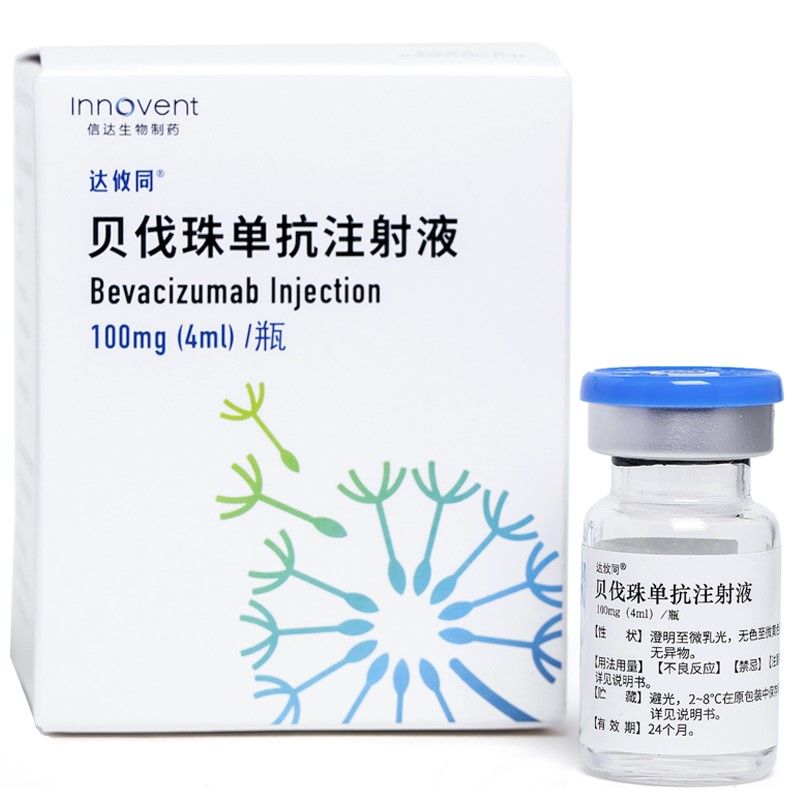Liver cancer is the third leading cause of cancer death globally, and China accounts for over 50% of all new cases and deaths worldwide. The disease is a serious threat to the life and health of Chinese people and a heavy burden on society and families, with hepatocellular carcinoma accounting for 85% to 90% of all liver cancer.
- Bone Health
- Immunology
- Hematology
- Respiratory
- Dermatology
- Diabetes
- Gastroenterology
- Neurology
- Oncology
- Ophthalmology
- Rare Disease
- Rheumatology
Innovent Gains NMPA Nod for Byvasda Combination in Unresectable HCC
Innovent Biologics said based on success of ORIENT-32, China's National Medical Products Administration (NMPA) has approved sintilimab in combination with bevacizumab biosimilar (Byvasda) in front-line unresectable hepatocellular carcinoma.
Innovent Biologics, said the National Medical Products Administration of China has approved the use of its sintilimab programmed death–1 (PD-1) inhibitor (Tyvyt) in combination with the bevacizumab biosimilar Byvasda as first-line treatment for patients with advanced or unresectable hepatocellular carcinoma (HCC).
The company said this marks the first regulatory approval of a PD-1–inhibitor combination therapy for HCC in the front line. Via the binding of PD-1 proteins on immune cells to the PD ligand 1 (PD-L1) expressed on tumor cells, the immune reaction to cancer cells is “switched off.” PD-1 inhibitors help to prevent this switching off from happening, allowing immune cells to destroy tumor cells.
Approval was based on findings from ORIENT-32, a randomized, open-label phase 3 trial of frontline Tyvyt in combination with Byvasda vs sorafenib, a kinase inhibitor that suppresses tumor growth, in patients with hepatitis B virus–related, unresectable HCC.
Patients in the combination arm had significantly longer progression-free survival vs patients in the sorafenib group (4.6 months vs 2.8 months, respectively; HR, 0.56; 95% CI, 0.46-0.70; P < .0001). The overall survival for the combination was not reached at data cutoff vs 10.4 months for the sorafenib group (HR, 0.57; 95% CI, 0.43-0.75; P < .0001), according to published findings.
“In China, liver cancer is the second most common cause of cancer-related death and ranks fourth in terms of incidence with a 5-year survival rate of only 10%,” said Fan Jia, MD, of Zhongshan Hospital of Fudan University, Shanghai, China. He served as lead author on ORIENT-32.
Within the subset of liver cancer, HCC accounts for 85% to 90% of incidence, according to Yongjun Liu, president of Innovent.
He noted that patients with HCC do not respond well to chemotherapy or targeted therapy, creating a need for more powerful treatment options such as immunotherapy (PD-1 inhibitors). “ORIENT-32 has demonstrated that sintilimab plus bevacizumab can extend the overall survival and progression-free survival in this patient population and bring significant clinical benefits,” Jia said.
For further details on the positive findings reported from ORIENT-32, click here.
Innovent Biologics is based in Suzhou, China, and has offices in San Francisco, California.
Newsletter
Where clinical, regulatory, and economic perspectives converge—sign up for Center for Biosimilars® emails to get expert insights on emerging treatment paradigms, biosimilar policy, and real-world outcomes that shape patient care.

